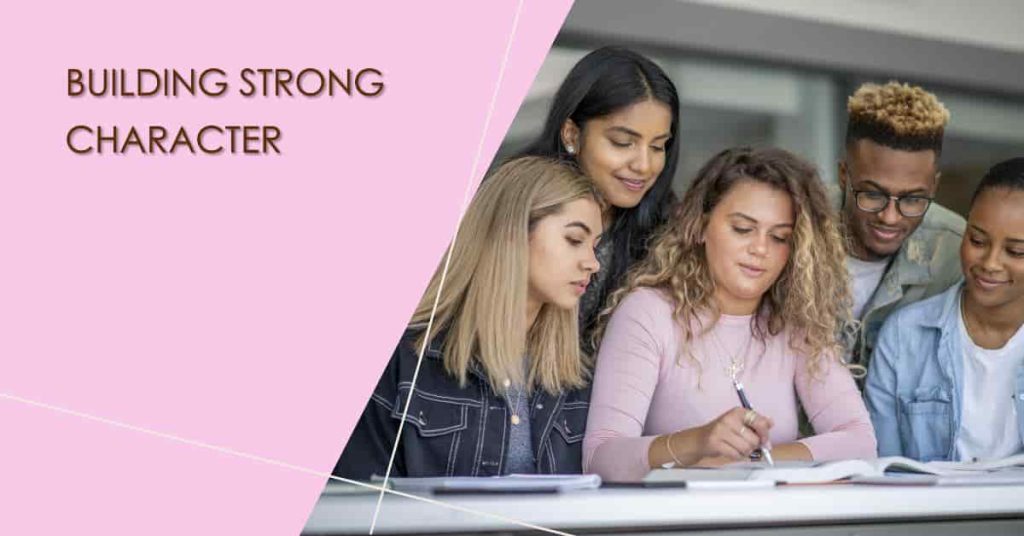
Character Education: Building Values and Morals in Students
In today’s rapidly changing world, education extends beyond academic achievement; it encompasses the development of character, values, and morals that shape students into responsible, compassionate, and ethical individuals. Character education is a critical aspect of the holistic development of students, ensuring that they not only excel academically but also grow into individuals who contribute positively to society. At Valdymas College of Advanced Studies, character education is a cornerstone of our educational philosophy, guiding our approach to teaching and learning.In this blog post, we will explore several key aspects of character education ,which includes:
- The importance of character education
- Integrating character education into the curriculum
- Character education and school culture
The Importance of Character Education
Character education involves the intentional teaching of core ethical values such as respect, responsibility, fairness, and integrity. These values are essential for students to navigate life’s challenges, make sound decisions, and build meaningful relationships. According to Lickona (1991), character education is essential for developing moral reasoning and ethical behavior, which are critical for personal success and societal well-being.
At Valdymas College, we recognize that character education plays a crucial role in the overall development of our students. We integrate character education into our curriculum and daily activities, ensuring that students not only learn about these values but also practice them in their interactions with others. This approach helps students internalize these values, making them a natural part of their decision-making process.
Integrating Character Education into the Curriculum
At Valdymas College, character education is not a standalone subject but is woven into the fabric of our entire educational program. We incorporate character education into our academic curriculum, co-curricular activities, and school culture. For instance, during literature lessons, students analyze characters’ actions and motivations, discussing the moral implications and lessons learned. In social studies, students explore historical events from an ethical perspective, considering the impact of decisions on communities and societies.
Moreover, we encourage students to engage in community service projects, which provide practical opportunities to apply the values they learn in the classroom. These projects help students develop empathy, a sense of responsibility, and a commitment to making a positive difference in the world. Research shows that service-learning experiences significantly enhance students’ moral development and understanding of social responsibility (Furco, 2002).
Character Education and School Culture
The culture at Valdymas College reflects our commitment to character education. Our school environment is designed to promote respect, inclusivity, and a strong sense of community. Teachers and staff model the values we teach, creating a positive and supportive atmosphere where students feel safe to express themselves and learn from their mistakes.
We also have a robust mentoring program where senior students guide younger peers, reinforcing the importance of character and ethical behavior. This peer mentorship helps create a school-wide culture of kindness, respect, and responsibility, where students are encouraged to support each other in their personal and academic growth.
In addition, we regularly recognize and celebrate students who demonstrate outstanding character through awards and public acknowledgment. This not only reinforces positive behavior but also motivates other students to strive for the same standards. According to Berkowitz and Bier (2005), recognition and reinforcement of positive behavior are essential components of effective character education programs.
Valdymas College’s Commitment to Building Future Leaders
At Valdymas College, our ultimate goal is to prepare students to be leaders in their communities and professions. We believe that character education is fundamental to leadership development. By instilling strong values and morals, we equip our students with the ethical foundation they need to make sound decisions, lead with integrity, and inspire others.
Our alumni are a testament to the success of our character education program. Many have gone on to make significant contributions in their fields, driven not only by their academic achievements but by the values and principles they learned at Valdymas College. This commitment to character education ensures that our students are well-rounded individuals, ready to face the complexities of the world with confidence and moral clarity.
References
- Lickona, T. (1991). Educating for Character: How Our Schools Can Teach Respect and Responsibility. Bantam Books.
- Furco, A. (2002). Service-Learning: A Balanced Approach to Experiential Education. Introduction to Service-Learning Toolkit. Campus Compact.
- Berkowitz, M. W., & Bier, M. C. (2005). What Works in Character Education: A Research-Driven Guide for Educators. Character Education Partnership.



